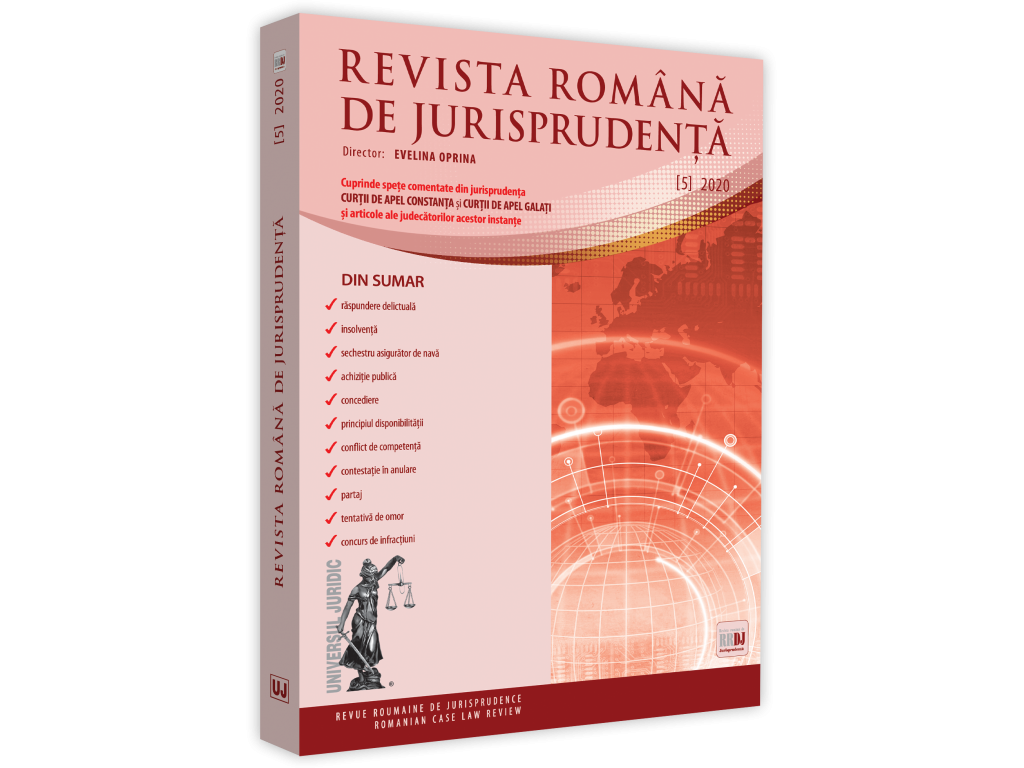Negative conflict of jurisdiction. Divorce. Change of domicile
DREPT CIVIL ŞI PROCESUAL CIVIL
Abstract
In the application of Article 915 paragraph 1 of the Code of civil procedure which contains three legal solutions concerning the court competent to judge the divorce application presupposes, it is necessary to first establish the relationship between the three legal hypotheses contained in each of the tenets of the text examined.
From the simple reading of the norm concerned, it appears that tenet I contains a general rule (the jurisdiction of the court in whose district the last common residence of the spouses is located), tenet II refers to an exception to this rule in two particular situations of (1. the spouses did not have a common home and 2. neither of the spouses lives in the district of the court where the last common home is located) and tenet III establishes a
special jurisdiction for a hypothesis that represents a derogation from the second particular situation in tenet II – that when the spouses had a house, but a common one,
neither of them lives in the district of the court where this common house is located.
The application of one of the solutions contained in the first two tenets of Article 915 paragraph 1 of the Code of civil procedure is the consequence of explanation of the
meaning of the phrases „one spouse lives in the district of the court where the last common home is located” respectively „neither spouse lives in the district of this court”.
As it was noted that the defendant lived, when Babadag Court was notified, in the building that was the last common home of the spouses and later left this address too, the issue is to determine the territorial jurisdiction in case of change during the process of the elements that have legally allowed the investiture of a certain court with a statement of claim.
For this hypothesis, Article 107 paragraph 2 of the Code of Civil Procedure states that the general rule of territorial jurisdiction of the court in whose district the defendant resides or is seated shall be maintained even if, following the notification, the defendant changes the domicile or seat.








